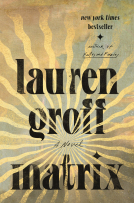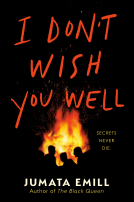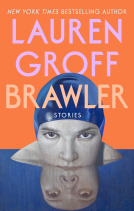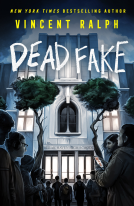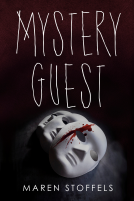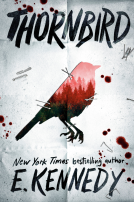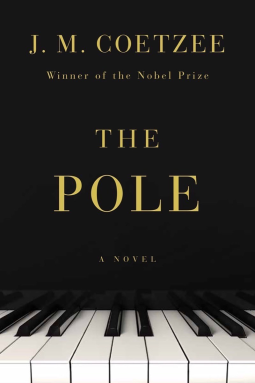
The Pole
A Novel
by J. M. Coetzee
This title was previously available on NetGalley and is now archived.
Send NetGalley books directly to your Kindle or Kindle app
1
To read on a Kindle or Kindle app, please add kindle@netgalley.com as an approved email address to receive files in your Amazon account. Click here for step-by-step instructions.
2
Also find your Kindle email address within your Amazon account, and enter it here.
Pub Date Sep 19 2023 | Archive Date Aug 31 2023
W. W. Norton & Company | Liveright
Talking about this book? Use #ThePole #NetGalley. More hashtag tips!
Description
A psychologically probing, compulsively readable novel about dogged love and the unpredictability of human relationships—from the Nobel Prize–winning author of Disgrace.
Exacting yet maddeningly unpredictable, J. M. Coetzee’s The Pole tells the story of Wittold Walccyzkiecz, a vigorous, “extravagantly white-haired” Polish pianist who becomes infatuated with Beatriz, a stylish patron of the arts, after she helps organize his Barcelona concert. Although Beatriz, a married woman, is initially unimpressed by Wittold, she soon finds herself pursued and ineluctably swept into the world of the journeyman performer. As he sends her letters, extends countless invitations to travel, and even visits her husband’s summer home in Mallorca, their unlikely relationship blossoms, though, it seems, only on her terms.
The power struggle between them intensifies—Is it Beatriz who limits their passion by controlling her emotions? Or is it Wittold, trying to force into life his dream of love? Evocative of Joyce’s “The Dead,” The Pole is a haunting work, evoking the “inexhaustible palette of sensations, from blind love to compassion” (El País) typical of Coetzee’s finest novels.
About the Author:
Born in Cape Town, South Africa, J. M. Coetzee is the author of twenty books, including Waiting for the Barbarians, which won South Africa's highest literary honor, the Central News Agency Award; The Life and Times of Michael K, for which Coetzee was awarded his first Booker Prize in 1983; Boyhood: Scenes from a Provincial Life, a memoir; and several essay collections. With Disgrace, Coetzee became the first author to win the Booker Prize twice. In 2003, he was awarded the Nobel Prize in Literature.
Available Editions
| EDITION | Hardcover |
| ISBN | 9781324093862 |
| PRICE | $26.00 (USD) |
| PAGES | 176 |
Available on NetGalley
Average rating from 52 members
Featured Reviews
 Bookseller 962362
Bookseller 962362
Concise, well-wrought story of relationships, love, and desire, explored through the idea of 'interpretation' - interpretation of music, of one's own perspective, of the internal stories on which one builds their life. A haunting and enticing read worth savoring.
This is my first Coetzee novel, and I'm surprised by the way it's wormed itself under my skin. The premise of this short book is simple: a pianist falls in love with a woman who doesn't return the intensity of his affections, and she narrates the story of their brief entanglement. What propels Coetzee's narrative forward is its singular focus on the problem of translation and the impossibility of ever knowing for certain what other people want, or mean, or think. From the beginning, Beatriz, the woman in question, assumes both that she completely understands her would-be paramour's desires and that she can never truly know him because they speak different languages (she refers to him as the Pole because she cannot pronounce his Polish surname). She expresses frustration at the way the Pole reduces her to an object in his conception of her, but likewise struggles to separate him from the outward manifestations of his identity: the clinical way he interprets Chopin, his aging body. She is similarly conflicted about herself, saying with confidence things that her actions immediately prove false, and obsessed with the way she appears to others despite her self-assuredness. Halfway through the novel, she stares at herself in the mirror and cannot escape the feeling that she is the person staring back at her: "What does that other see?" Coetzee's spare language and focused plot traces unsettling psychological ground, exposing the unsettling truth that there is too often space between who we are, who we believe ourselves to be, and how we are perceived.
Thank you to W. W. Norton & Company and NetGalley for the ARC!
 Educator 1179425
Educator 1179425
Describing this as a book about an affair doesn’t really do it justice. While it is ostensively the story of a brief relationship of between a famous and aging Polish pianist and a married Catalan women, what I found most interesting about it was what is says about infatuation, love, and romance—the stories we tell ourselves, the stories we tell others, and the subjectivity (and occasional irrationality/fickleness) of our feelings towards others. I also appreciated its exploration of the ways in which we are shaped and informed by people who cross our paths, even if only for a short time. In this affair there are no heroes or villains, just real people trying to achieve a moment of transcendence in a confusing world.
"The Pole" is the second book by J.M. Coetzee I read, "Disgrace" being the first one, remaining one of my favorite novels of all time. This time, the author tells the story of love between 70-year-old Polish virtuoso pianist Witold and a 50-year-old woman, Beatriz.
Beatriz is a patron of arts, living in Barcelona, and after attending Witold's concert, she performs her duty of entertaining the artist with dinner and conversation. She is not impressed with Witold's interpretation of Chopin, which she finds emotionless. Still, she is too polite to mention to him that her favorite pianist is Claudio Arrau - and not, by any means, Witold Walczykiewicz. The conversation could be smoother, too: they communicate in English, and it seems to Beatriz that Witold expresses his thoughts incorrectly. She is a beautiful woman, still turning men's heads in a restaurant; she is also practical and married. Conversely, Witold is a romantic, perhaps just an older divorced man looking for true love. He finds it in Beatriz.
He is an artist, but even while bringing classical love parallels of Beatrice and Dante, later, when they spend a week in Mallorca, just like George Sand and Chopin, Witold can't make Beatriz fall in love. With all her calmness and reasoning, she is flattered but doesn't want to change her life. Eventually, Witold realizes he can only dream about Beatriz and maybe, like Dante, write poems about her. His poems are written in Polish, a language Beatriz doesn't speak. And he only has a little time left.
"The Pole" was first published in Spanish, as Coetzee probably intended to say that English, though considered a global language, may not be the universal language. Love is not the universal language either. We express our feelings using language, but even hearing what one says, another person may never comprehend the meaning. In a way, "The Pole" is a novel about the inadequacy of language. There is a language barrier that stops Beatriz and Witold's relations from progressing into love. However, there is also "a feeling barrier," which is even harder to overcome. The music does not make their dialog easier, either. They both see something different in Chopin's music because the language of music speaks differently to each of them. As Witold says, "You do not understand because I do not explain well in English, not in any language, even in Polish. To understand you must be silent and listen. Let the music speak, then you will understand."
The short, austere paragraphs are brief pictures of longing, never fully expressed, yet always present. They are like photos from an album that a reader can leaf through; words are not enough, music is fleeting, and yet, there is hope in loneliness. It's a beautiful novel.
 Stephen B, Librarian
Stephen B, Librarian
My thanks to Liveright and NetGalley for an e-ARC of this title, to be released in the US on September 19, 2023.
Ahhh, I do love when an author like Coetzee says so much more in a mere 176 pages than some authors say in 400-600 pages.
A third person narrator gives us the story of a one sided love, of an affair, through Beatriz' eyes and mind and emotions. But, like so many others in Coetzee's work, there is a definite distancing here, an unwillingness to engage or share those emotions. Whether it be the narrator, Beatriz, or "The Pole" (who has made a career out of presenting a rather lifeless and unemotional Chopin).
How does Coetzee pack so mucn into such a slim volume (already published in Spanish in Argentina in 2022)? The amazing thing is, the tone still reminds me so much of his earlier work, published nearly 50 years ago.
I read this with his Nobel Acceptance Speech (2003) - which was not the usual speech given for that award. Rather it was a story about Defoe, Robinson Crusoe, and orginal sources. It was to the point, while being a bit confusing at the same time (because it was so different from what is usually presented at one of those events). It was more about the writer's process than any statement about the world's situation.
Read it, and more Coetzee as well........ I do keep meaning to go back and reread some of his great early work, which I first read in the mid '80's.
4.5 out of 5.
Readers who liked this book also liked:
Lexi Davis
New Adult, Romance, Women's Fiction
Lexi Davis
Mystery & Thrillers, New Adult, Romance
